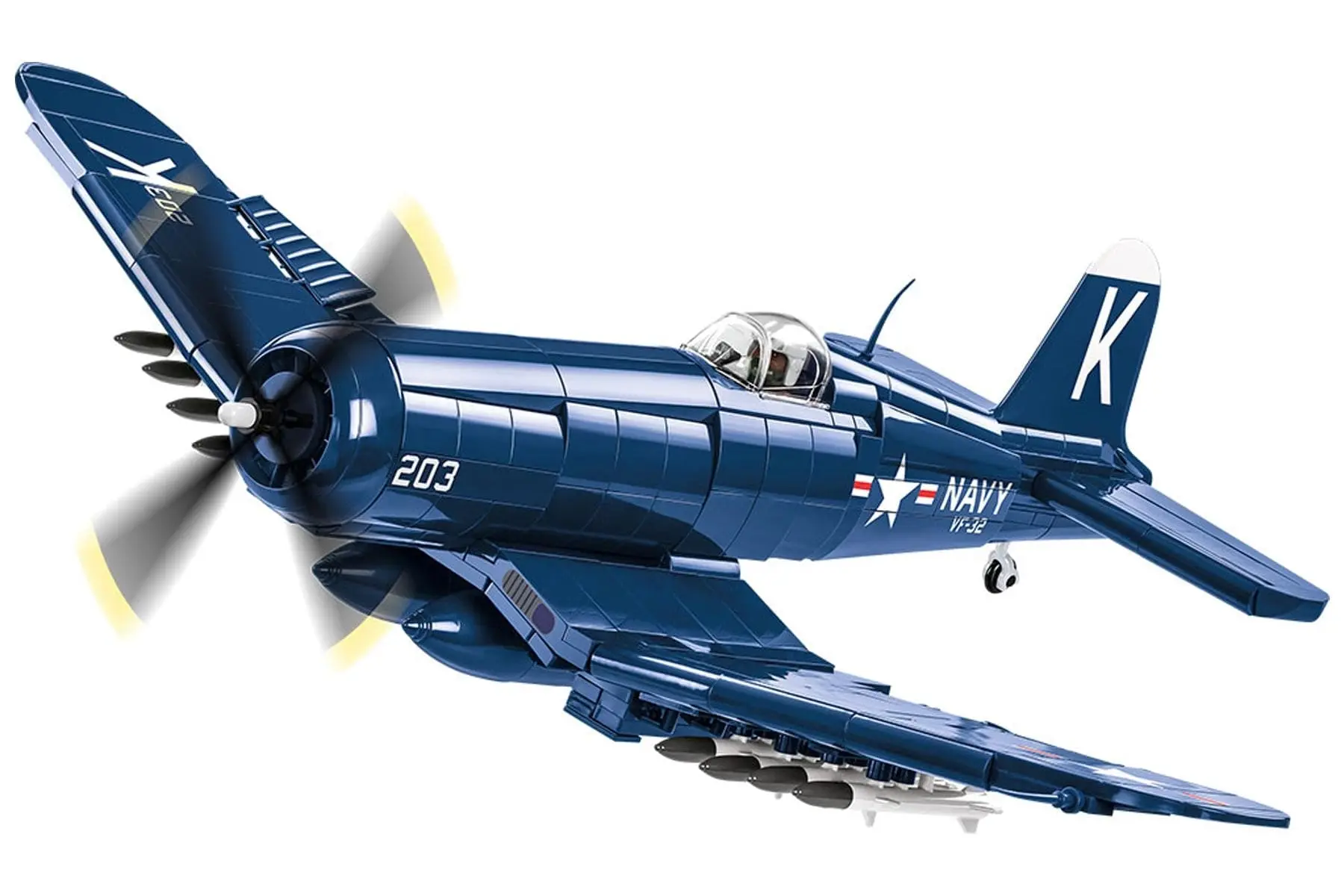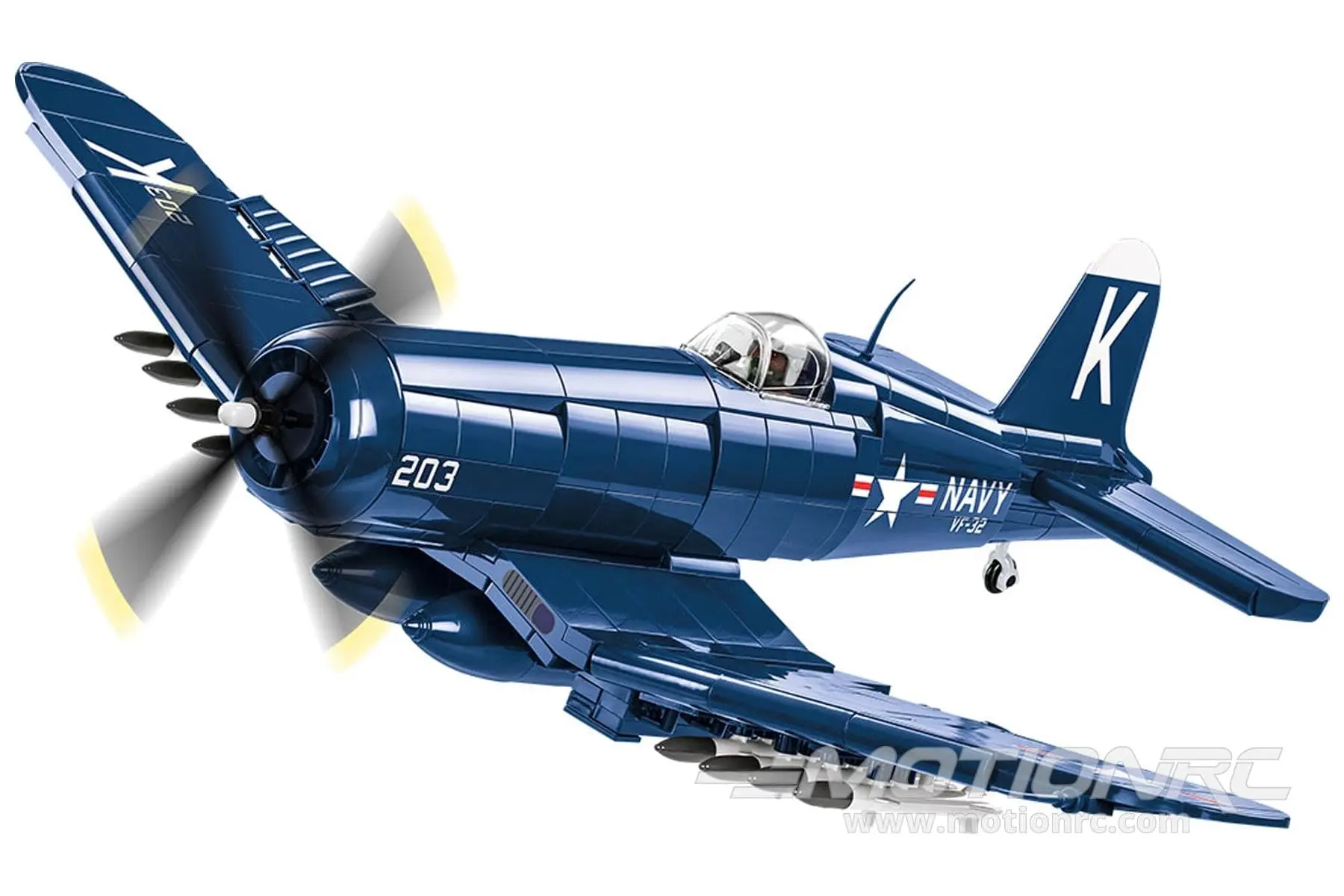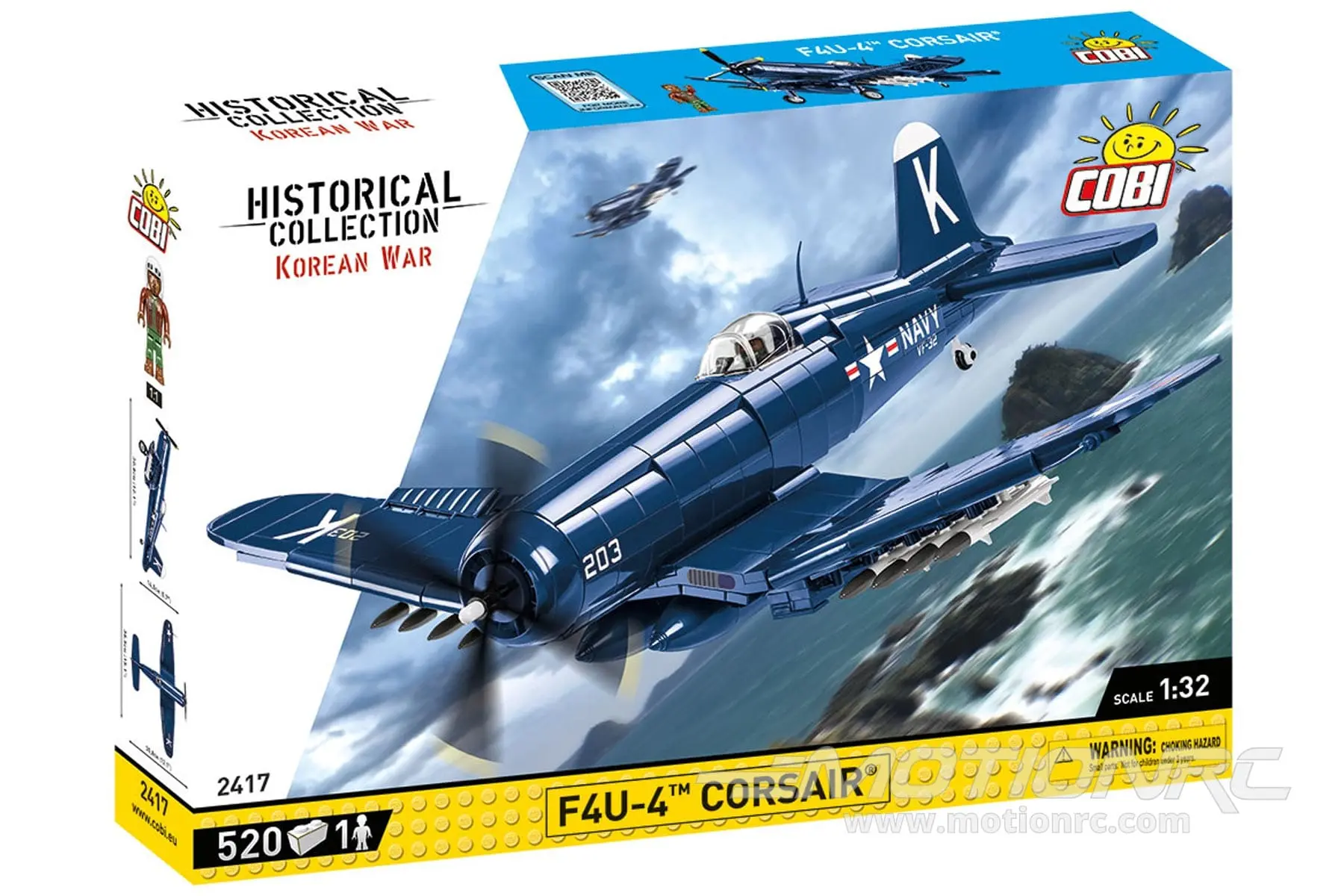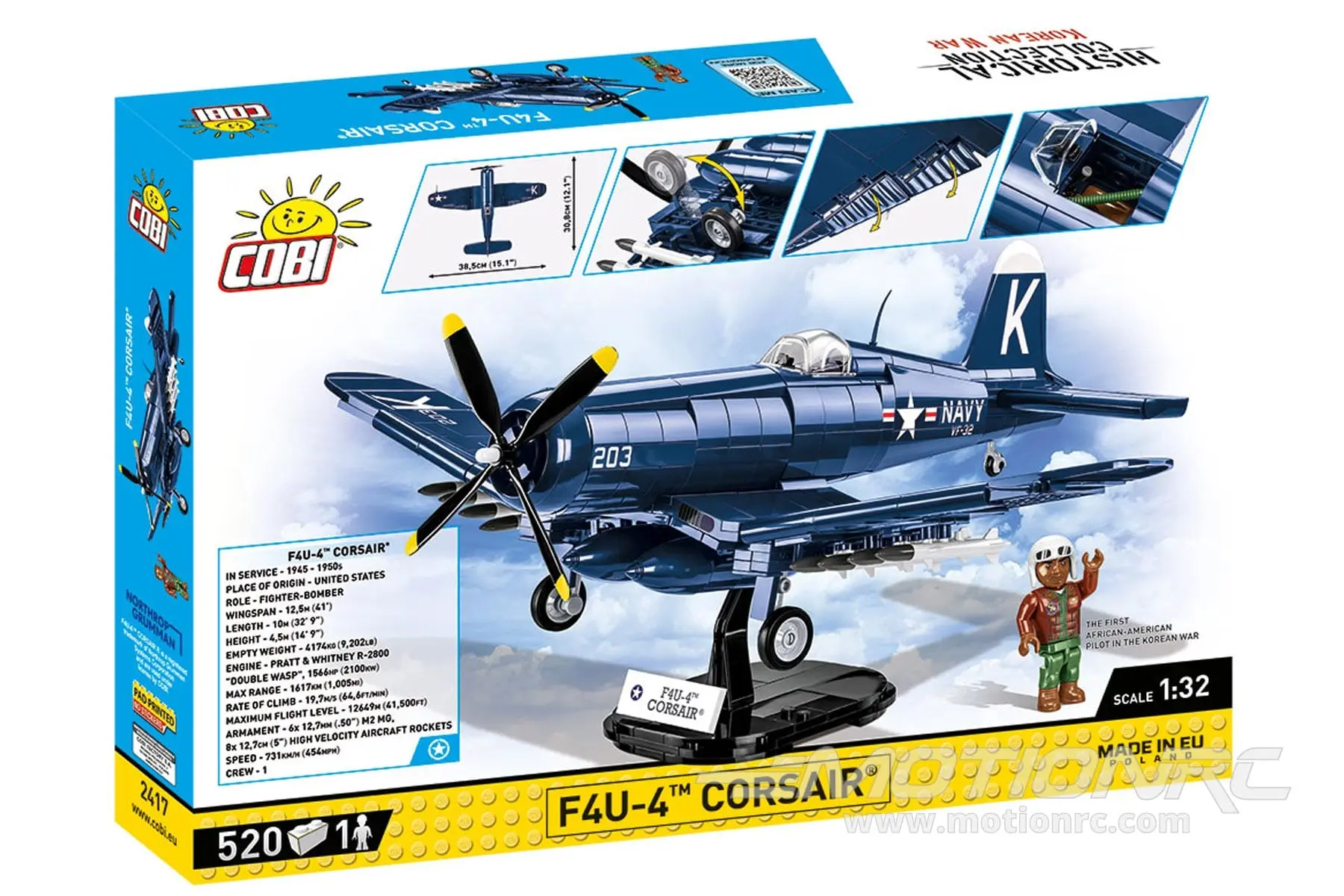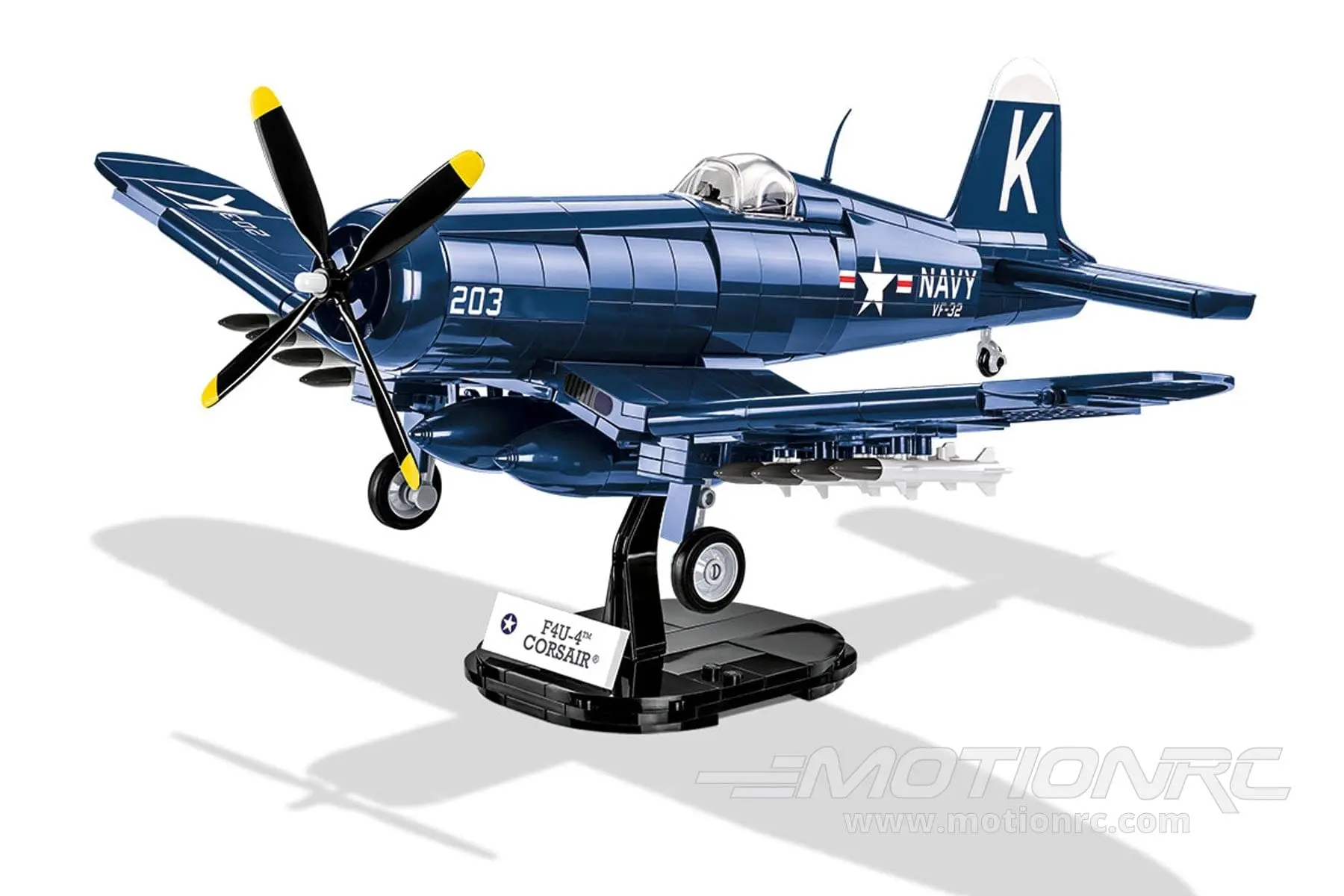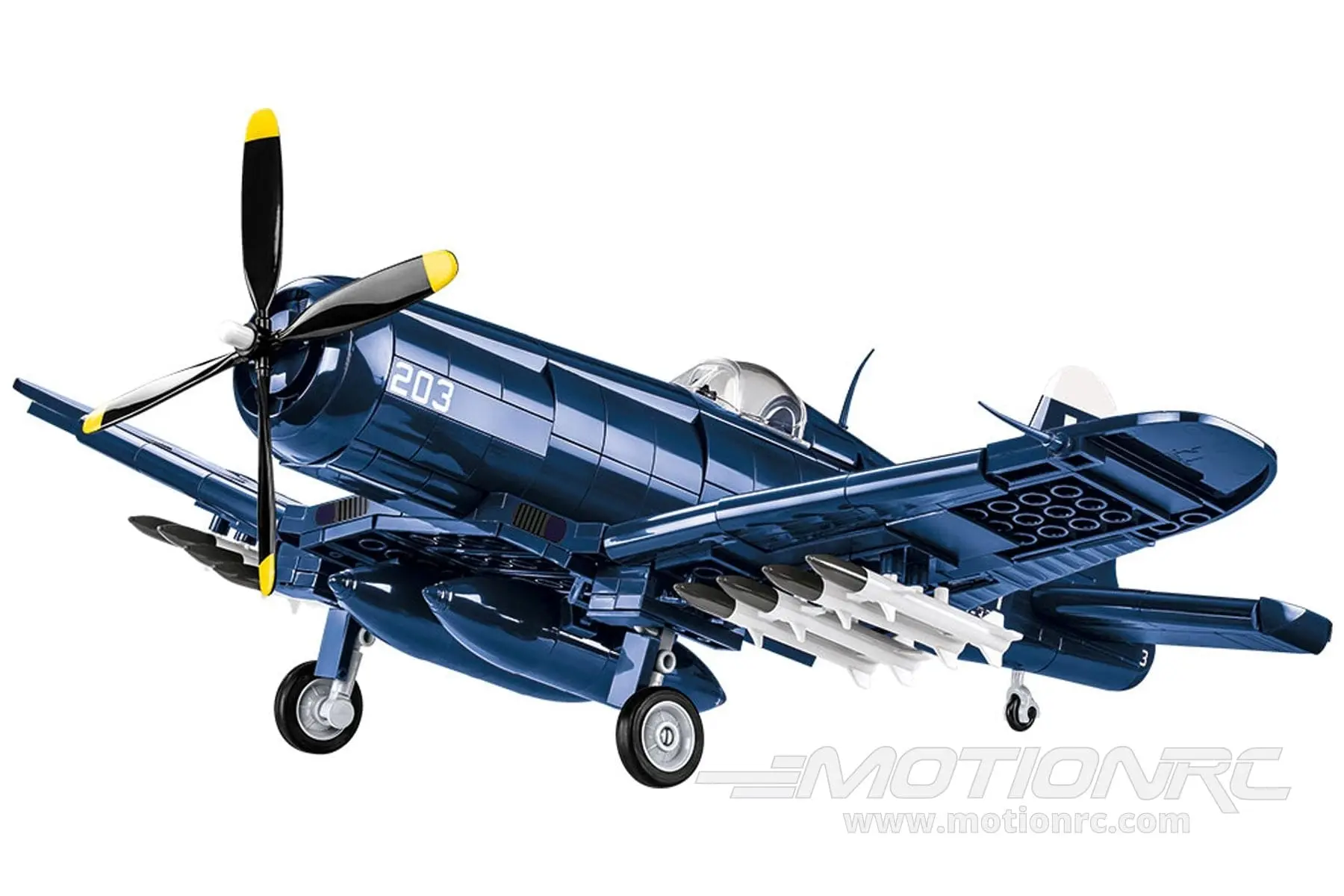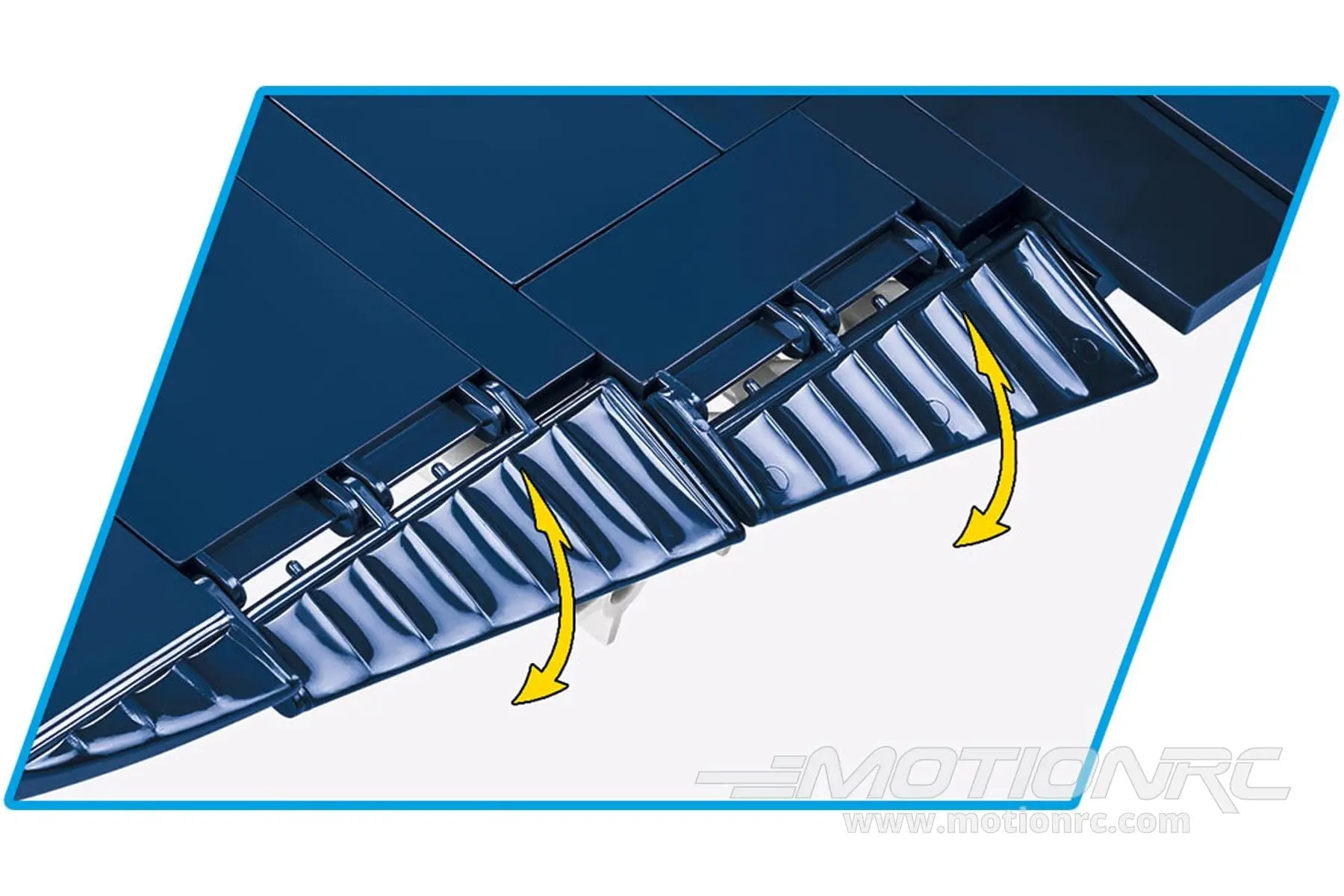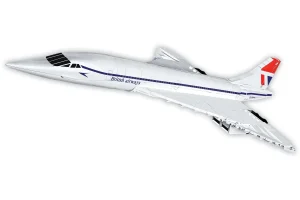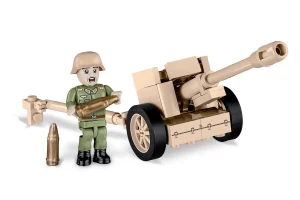F4U-4 Corsair Korean War 1:32 Scale 520 pc. Building Block Set by COBI – COBI-2417
The Vought F4U-4 Corsair was a US Navy fighter produced from 1942-1952 by Vought-Sikorsky Aircraft. The characteristic shape of the hinged wings and the rearward-shifted pilot’s cockpit were the result of numerous modifications during the design and testing phase of the prototypes. The culmination of the design work was an aircraft with exceptional performance, considered by many to be the best fighter of World War II.
Corsairs were also used by American units during the Korean War. In the initial period, there were dog fights between the F4U and the Yak-9 fighters, but with the arrival of the MiG-15, Corsairs in Korea were withdrawn to the role of support aircraft and night fighters. The plane was armed with six 12.7mm Browning machine guns, two 450kg bombs or eight 127mm HVAR unguided missiles. The first African American US Navy pilot (whose life inspired the movie “Devotion”) sat at the controls of this impressive aircraft.
This kit is produced under license by the Northrop-Grumman concern and contains 520 high-quality components. The historical pilot figure includes an additional interchangeable head. The COBI model created with attention to the smallest details in a 1:32 scale. It is covered with high-quality prints that do not wear off even during intensive use. The cockpit opens and a figure can be placed in it, while other moving parts include ailerons, propeller, and retractable landing gear. The finished model is complemented by a display plate with the name of the aircraft model and perfectly complements other COBI WWII and Korean war planes in 1:32 scale, resulting in one of the most beautiful block models available and is certain to attract attention with its hinged and folding wings.
Features:
- 520 high-quality components
- Fully compatible with other brands of construction blocks
- Impressive 1:32 Scale
- Produced under license from Chance-Vought Aircraft Corp
- Produced in the EU by a company with over 20 years of tradition

